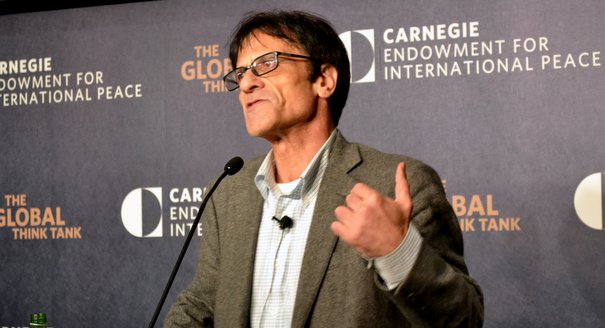Registration
You will receive an email confirming your registration.
China’s consumption imbalance bottomed out in 2011 and 2012, at the same time that financially repressed interest rates—the main factor behind both deepening imbalances and capital misallocation—finally reversed. Though China’s economy is rebalancing, some experts argue that Beijing waited too long to begin adjustments; debt levels are high and the economy still requires an unsustainably fast growth in credit to maintain high levels of economic activity. Michael Pettis analyzed the challenges and risks Beijing faces as it continues to implement necessary reforms. Douglas H. Paal moderated.
Michael Pettis
Michael Pettis is a senior associate in the Asia Program at the Carnegie Endowment for International Peace based in Beijing. An expert on China’s economy, Pettis is professor of finance at Peking University’s Guanghua School of Management, where he specializes in Chinese financial markets.
Douglas H. Paal
Douglas H. Paal is vice president for studies at the Carnegie Endowment for International Peace. He previously served as vice chairman of JPMorgan Chase International and as unofficial U.S. representative to Taiwan as director of the American Institute in Taiwan.
